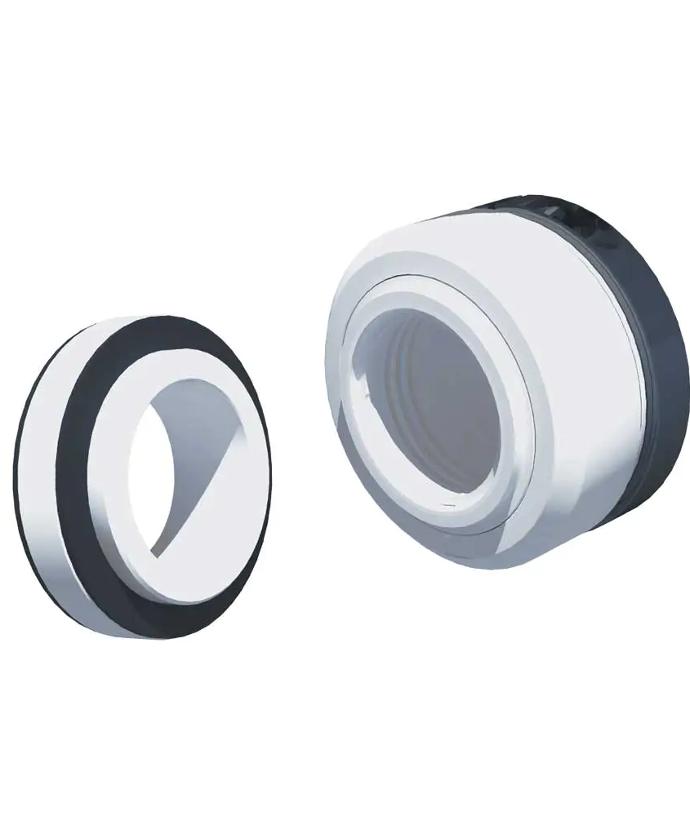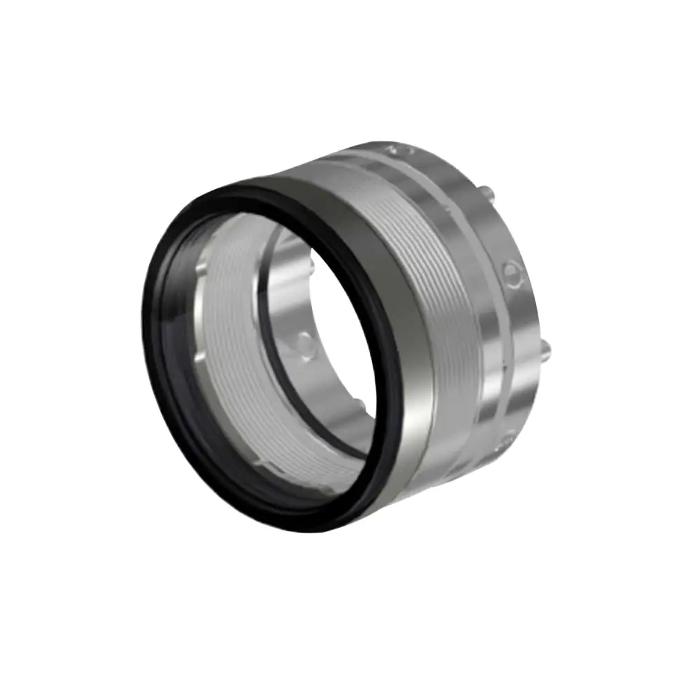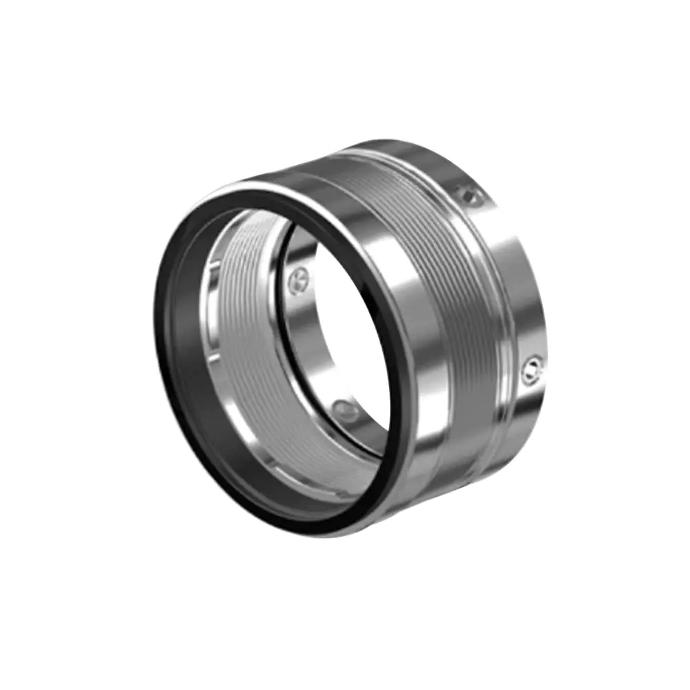Reliability You Need
A Partner You Trust
Products > Mechanical Seals > Component Mechanical Seals > Bellows Mechanical Seals
Metal Bellows Component Mechanical Seals
Bellows Component Mechanical Seals are a type of mechanical seal used in various industrial applications to prevent fluid leakage. They are distinguished by their bellows, which are flexible, accordion-like components that provide several advantages over traditional mechanical seals.
Structure and Function of Bellow Seals
Components
- Bellows: The primary feature, usually made of metal (like stainless steel, Hastelloy, or Inconel) or elastomer, providing flexibility and compensating for axial, radial, and angular movements.
- Sealing Faces: Typically made of hard materials like silicon carbide, tungsten carbide, or carbon, these faces create the primary sealing interface.
- Secondary Seals: O-rings, gaskets, or PTFE seals that provide additional sealing capabilities.
- Spring Mechanism: Often integrated within the bellows, providing the necessary force to maintain contact between the sealing faces.
Working Principle
Bellows component mechanical seals work by maintaining a precise, controlled pressure between the sealing faces. The bellows allow for flexibility, accommodating misalignments, thermal expansion, and other dynamic movements while maintaining a tight seal.
Advantages
- Flexibility and Versatility: The bellows design allows for greater flexibility, accommodating shaft misalignment, thermal expansion, and vibrations.
- Corrosion Resistance: Depending on the material used for the bellows, these seals can offer excellent resistance to corrosive environments, making them suitable for aggressive fluids.
- Reduced Wear and Tear: The uniform pressure distribution provided by the bellows reduces wear on the sealing faces, extending the seal’s operational life.
- Compact Design: Bellows seals are often more compact compared to traditional pusher seals, making them ideal for applications with space constraints.
- Leakage Prevention: The design minimizes the potential for leakage, even in challenging operating conditions.
Applications
Bellows component mechanical seals are used in a variety of industries and applications due to their versatility and reliability:
Chemical and Petrochemical Industries
- Pumps and Compressors: Handling aggressive chemicals, acids, and alkalis.
- Reactors and Agitators: Ensuring leak-proof operations in chemical processing.
Oil and Gas Industry
- Drilling Equipment: Providing reliable sealing in harsh and abrasive environments.
- Pipeline Pumps: Ensuring safe and leak-free transportation of hydrocarbons.
Pharmaceutical Industry
- Sterile Pumps: Ensuring contamination-free processing of pharmaceuticals.
- Mixers and Blenders: Maintaining integrity and preventing leaks in sensitive applications.
Water and Wastewater Treatment
- Pumps: Used in clean and dirty water applications, providing robust sealing solutions.
- Aerators and Mixers: Ensuring efficient operation without leaks.
Power Generation
- Boiler Feed Pumps: Handling high-pressure and high-temperature conditions.
- Circulating Pumps: Ensuring continuous and reliable operation in power plants.
Food and Beverage Industry
- Dairy Processing Equipment: Maintaining hygiene and preventing contamination.
- Beverage Pumps: Ensuring leak-free transfer of liquids.
Pulp and Paper Industry
- Pulp Agitators: Handling abrasive pulp suspensions.
- Paper Machine Pumps: Providing reliable sealing in various stages of paper production.
Special Considerations
- Material Selection: Choosing the right material for the bellows and sealing faces is crucial for compatibility with the fluid being handled.
- Installation and Maintenance: Proper installation is vital for optimal performance. Regular maintenance can further extend the seal’s life.
- Operating Conditions: Understanding the specific operating conditions, including temperature, pressure, and fluid properties, is essential for selecting the right bellows component mechanical seal.
In summary, bellows component mechanical seals are a versatile and reliable sealing solution, suitable for a wide range of demanding industrial applications. Their unique design and materials offer significant advantages in terms of flexibility, durability, and resistance to harsh environments.


